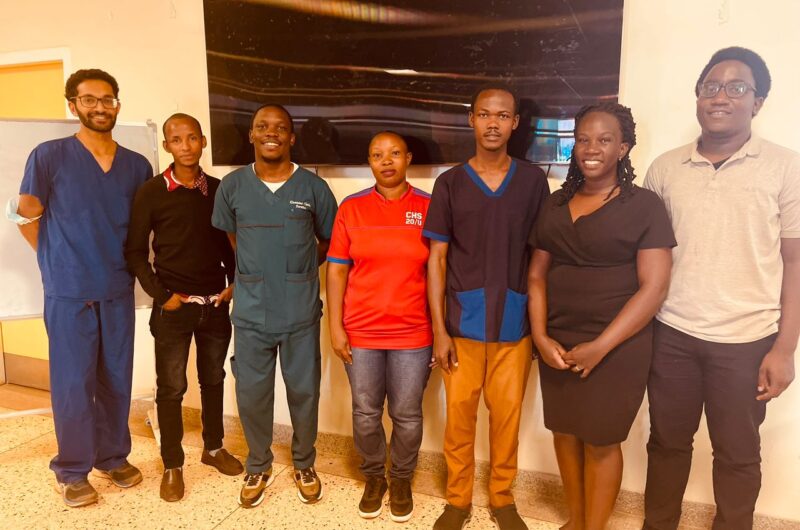In this blog, medical student Mithylan Ganeshwaran describes his four-week ethical elective in Kampala, a transformative experience that provided a huge amount of hands-on learning and ignited a passion for emergency medicine.
“I’ve always seen a medical degree as a means to helping the most vulnerable, the majority of whom live in the Global South. CGHP’s Ethical Electives Scheme was mentioned during an electives talk, and I proceeded immediately to find out more as it’s what I’ve always dreamed of.
For my elective I was based at Mulago National Referral Hospital (MNRH) and the Uganda Heart Institute (UHI), Kampala. I joined the Strengthening Health Workforce Capacity through Global Learning in Critical Care (SCALE) partnership, which aims to bring together ICU teams from the UK and Uganda in activities such as Grand Rounds and hybrid simulation training to facilitate the sharing of knowledge and skills.
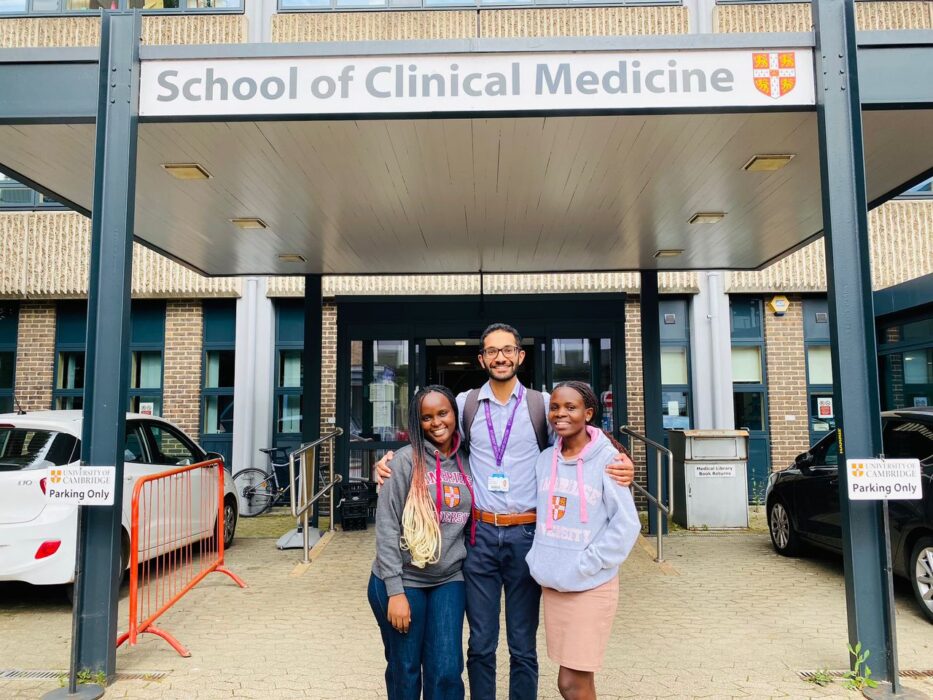
Mithylan Ganeshwaran (centre) with Uganda medical elective students in Cambridge.
A rich learning environment
During the placement it was my responsibility to integrate myself into the clinical teams, both to learn from them and to better understand the health system. I helped out where I could, including with some simple logistics in preparation for a hybrid simulation day during which ICU teams from CUH and MNRH connect over Zoom from their respective simulation suites.
As a student I was very much learning from them, but I became more and more functional throughout the placement and ended up being able to help out doctors and nurses. I would help with clerking patients, resuscitations, procedures (some of which I became able to do independently), delivering medications, changing bedding, cleaning patients, cleaning beds, and more.
By the end of my elective, I had nurses saying they’d miss my help, doctors telling me they were grateful for how I cared for their patients like my own, and students saying they’d miss me. The appreciation was very fulfilling and I felt like my hard work trying to integrate paid off.
The challenges and rewards
I’ve always known my privilege as someone living in the UK, and how that puts me in the top few percent of people worldwide in terms of wealth, and I’ve always acted from afar to try and help those who are more vulnerable. However, it was challenging being one of the most privileged people in the room all the time, and at times seeing and working with some of the most vulnerable people in the world. I didn’t shy away from it and continued to try to use my privilege to work hard for those people (and I plan to continue to do so from afar).
Getting stuck into the medical and nursing teams was also challenging at first, because the system is very different to the UK and it was stressful navigating it. However, once it made sense and once I became functional as a doctor/nurse (commonly addressed as ‘musawo’ in Luganda), it was so satisfying to join the team working the ED as an extra pair of hands, rather than a student trying to avoid getting in the way.
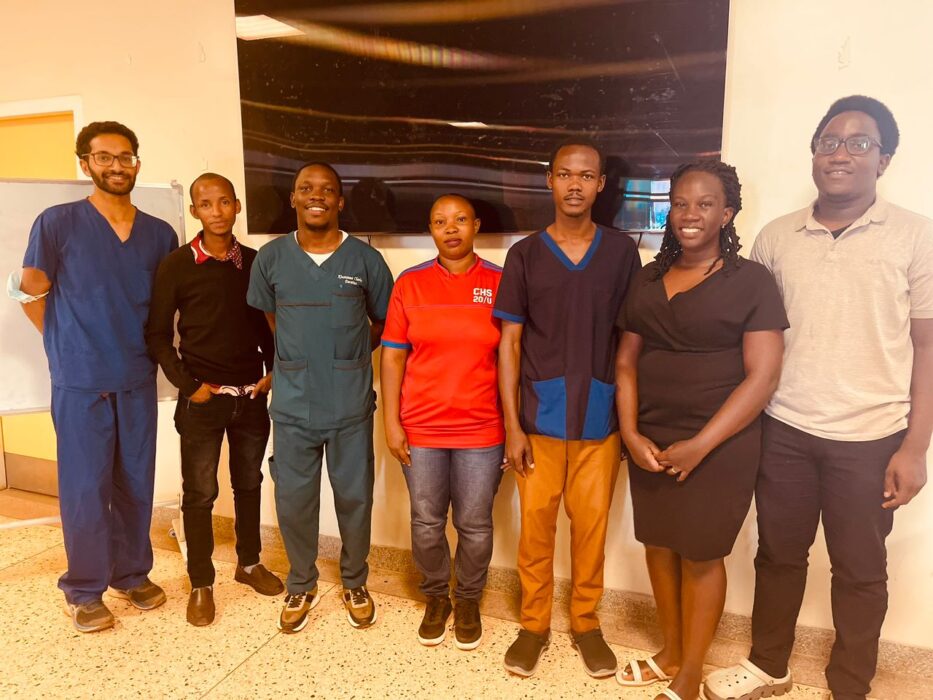
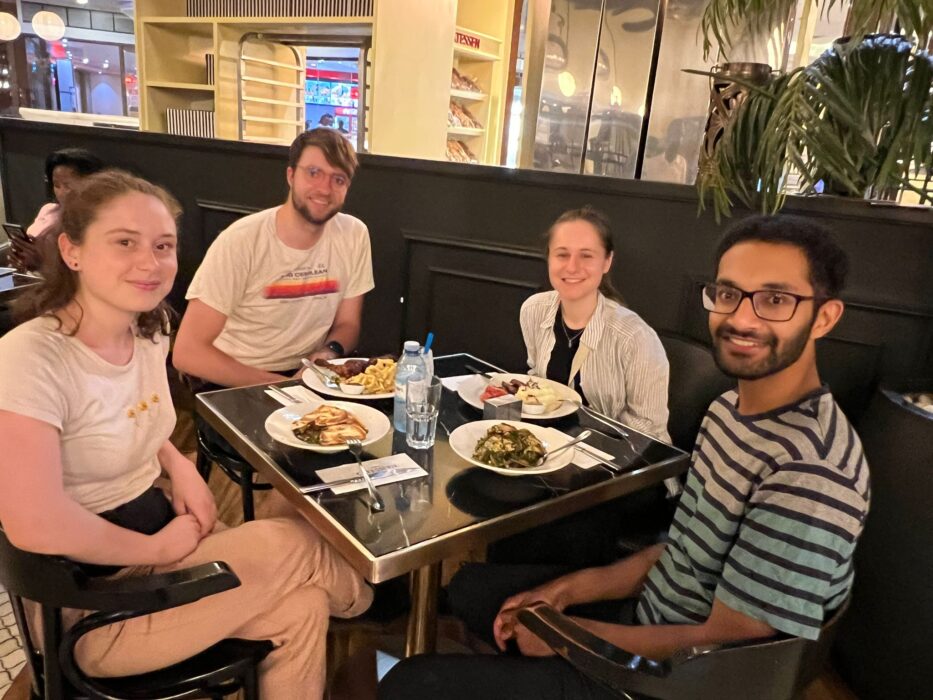
A journey of self discovery
I’ve never been one to shy away from the suffering of those distant from me – I’ve tried to engage in charity work and educate myself about what life is like elsewhere in the world. I know that the NHS is an exceptional health system compared to many other less resourced places in the world. However, it still hit me when I saw firsthand the difficulties faced by patients and the healthcare system. From afar, you can donate a bloods analyser, but you don’t consider all the small issues around that, such as whether there will be enough blood bottles, or gloves to use as tourniquets. All the small things add up and make working in a lower resource setting much more stressful than working in a higher resource one.
However, I much prefer it. During my elective, I felt like I was doing something meaningful. Even if I wasn’t always directly helping, I was educating myself to be able to do so in the future. It was intense and draining at times, but each day I’d leave satisfied. Additionally, I’ve learned that I’m a practical person who enjoys working with what I have, rather than complaining about what I could have, which served me perfectly during the month.
Most personally, I loved the vibrancy of the culture and people. Even as I write this reflection on the flight home, I’m looking back to Entebbe/Kampala on the map – I can’t forget those streets, those people – I can’t wait to go back.
A steep learning curve professionally
As part of the elective I spent 24 hours in the Emergency Department (ED) which was a very stressful working environment. Overloaded with patients in back-to-back beds, with some people on mattresses on floors, new admissions would come in constantly and sit wherever they could. Over in Resus, there was a little more space (still less than half of what we have in the UK), but a severe lack of staff and consumables for what were often very complicated patients. To top all of this off, the ED was being renovated at the time, so was quite literally in pieces.
Despite this, it was the time I felt most useful. Attendants would come to me calling ‘musawo’, and where I’d previously had to ask a doctor or nurse for the answer, I was able to handle several issues independently. I found myself putting in lines, giving drugs and doing catheters. By the end I’d been covered by most bodily fluids and had seen so much death, but I’d learned that neither of those scare me: what does scare me is seeing people suffer. I think the elective has secured my choice of specialty: ED with some training in ICU and Anaesthetics, and has confirmed that I want to focus my efforts on the Global South.
Just one month learning from the staff and students in Kampala has made me a better student and will make me a better doctor….The hands-on experience has been incredible.
Just one month learning from the staff and students in Kampala has made me a better student and will make be a better doctor. I ended up spending more than 250 hours either clinically or in teaching: I held a jaw thrust for the first time; I performed CPR for the first time; I called for help to resuscitate several patients I found pulseless for the first time; I ended up doing a range of procedures independently (including giving drugs), and under the supervision of a consultant I led the clerking and immediate management of a seizing patient on the penultimate day of the placement. The hands-on experience has been incredible.”
I’m sure my enthusiasm for what has been the best month of my life so far will come across as I speak to other medical students, and as I continue to share with them the ongoing global health work that I plan to do. I have always thought that global health work is what motivates me to continue studying Medicine and work as a doctor, and this placement has confirmed this for me – it is what makes me happy.
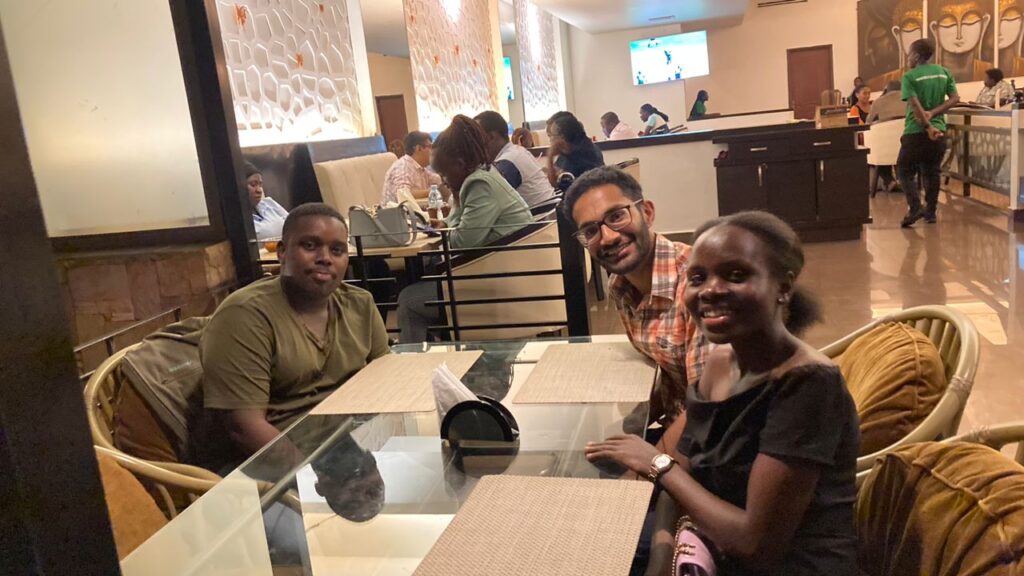
Mithylan’s trip was made possible by funding from the Thriplow Charitable Trust.
Find out more about ethical elective opportunities with CGHP’s partnership programmes, or contact us at info@cghp.org.uk
Return to blogs

